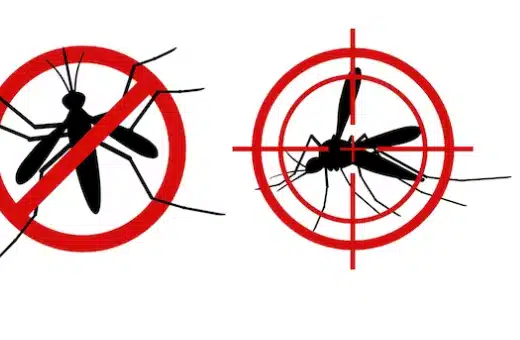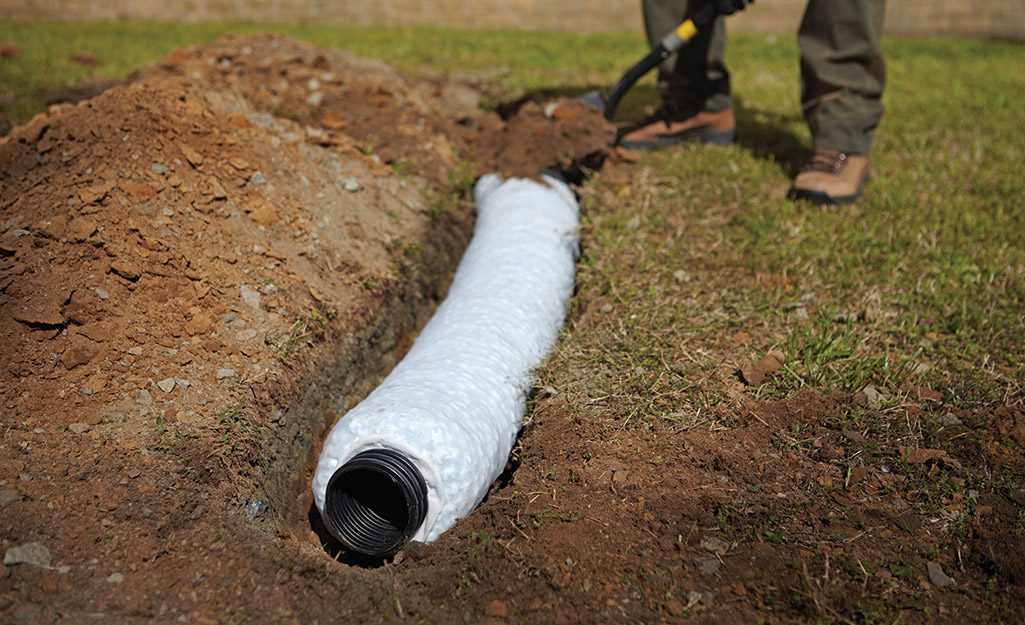Proof your french drain system which are the perfect breeding ground for french drain mosquitoes.
They tend to breed in standing water.
Mosquitoes can be a pesky problem, especially during the muggy summer months.
To help you keep mosquitoes at bay, here are 9 ways to mosquito-proof your french drain :
Eliminate standing water in your yard. Consider using a drainage solution like a catch basin connected to a drainage pipe or a French drain to allow excess water to flow away.
Check your yard for any items that can hold water, such as children’s toys or bird baths, and empty them at least once a week.
Keep gutters clear of debris that can fill up with excess water and create a breeding ground for mosquitoes.
Sprinkle coffee grounds wherever you discover standing water in your yard. The grounds are non-toxic and keep mosquitoes away.
Use mosquito repellent plants like lemon balm, basil, and marigolds in your backyard to deter those irritating insects.
Install yellow bug lights or LED lights in your backyard to repel mosquitoes before they hatch.
Install all-in-one outdoor lighting and mosquito repellent fixtures that can be purchased at garden stores.
Use mosquito dunks in your catch basin or drainage system to kill any mosquitoes that may be present.
Consider using essential oils like citronella, lavender, or peppermint to control mosquitoes in your yard.
Consider using a drainage solution like a catch basin connected to a drainage pipe.
Eliminating standing water in your yard is an effective way to get rid of mosquitoes and prevent mosquito breeding.
Mosquitoes lay their eggs in standing water, so getting rid of any areas where water can collect is crucial.
This is important for mosquito control and prevention of mosquito-borne diseases like West Nile Virus.
One way to get rid of standing water is to use a perforated pipe to drain water away from the area.
This is especially important in areas that tend to accumulate water, such as low-lying spots or areas with poor drainage.
Another way is to remove potted plants from your yard and keep them indoors during the muggy summer months, as potted plants can hold water that mosquitoes love.
In addition to removing standing water, there are other control solutions that can help prevent mosquito breeding.
Covering trash containers and checking for any areas that tend to fill with water sporadically, such as gutters or channel drains, can help eliminate breeding sites.
Plants like lemon balm, basil, and marigolds are also known to repel mosquitoes.
Incorporating these herbs and plants in your yard can help deter mosquitoes from entering your home and .
Mosquito prevention is key to controlling the mosquito problem, and effective ways to control mosquitoes .
Prevention includesinclude removing breeding mosquitoes before they emerge as adult mosquitoes and installing repellent fixtures that can be purchased at garden stores.
Getting rid of standing water in your yard is an effective way to control mosquito breeding and prevent the spread of mosquito-borne diseases.
By taking simple measures such as using perforated pipes and removing potted plants, you can significantly reduce the number of mosquitoes in your home.
Remember that eliminating standing water is just one way to control mosquitoes.
Other control solutions like planting mosquito-repelling plants and checking for mosquito eggs present can also help keep your home mosquito-free.
Did you know that coffee grounds can help prevent mosquito breeding?
Sprinkle coffee grounds in areas where standing water is present, such as flowerpots, to prevent mosquitoes from laying their eggs.
This natural method is safe, effective, and an eco-friendly way to keep mosquitoes away from your home.
AL Rooter plumbing company suggests using mosquito repellent plants in your yard.
Herbs and plants like lemon balm and citronella are known to repel mosquitoes naturally.
Adding these plants to your garden can help keep mosquitoes away and reduce the risk of a mosquito problem in your home.

When choosing between solid and perforated pipe, it is important to consider the specific needs of your project.
Solid pipe is better suited for applications where water needs to be carried away from an area, while perforated pipe is ideal for French drain systems and other drainage applications.
Additionally, it is important to consider the potential for debris to enter the perforations of the pipe, which can cause clogs and affect the efficiency of the drainage system.


